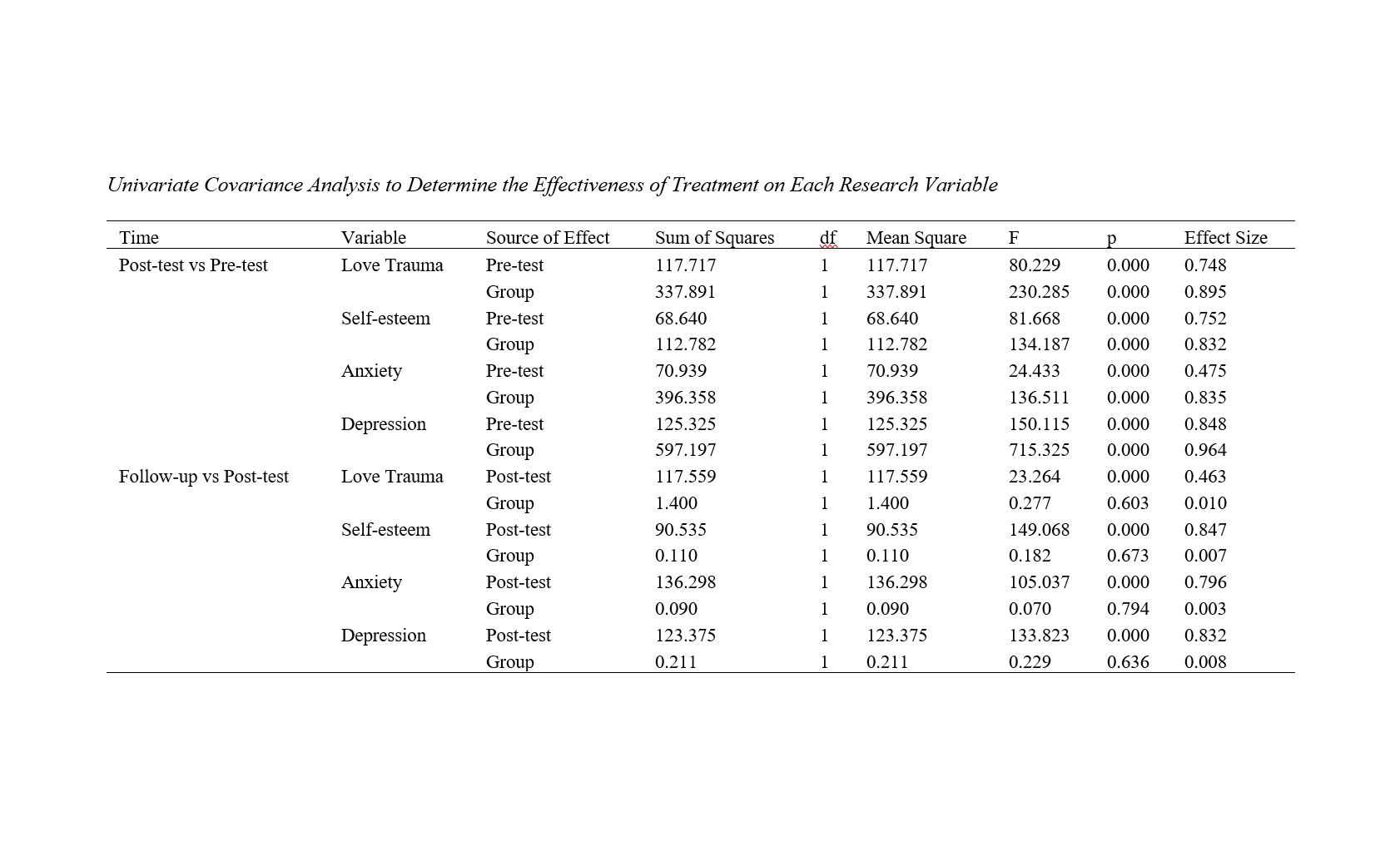The Effectiveness of Cognitive-Behavioral Therapy in Alleviating Symptoms of Love Trauma Syndrome in Female University Students
Keywords:
Cognitive-Behavioral Therapy, Love Trauma Syndrome, StudentsAbstract
Objective: Love Trauma Syndrome encompasses a range of severe symptoms that emerge after the end of a romantic relationship and are sometimes accompanied by a spectrum of clinical conditions such as severe anxiety, depression, and substance use. Therefore, the present study aims to investigate the effectiveness of cognitive-behavioral therapy (CBT) on self-esteem, anxiety, and depression in female university students with a history of emotional breakup.
Methods and Materials: This quasi-experimental research employed a pre-test, post-test, and follow-up design with a control group. The statistical population included all female students at Sari University who visited the counseling center in 2023. A purposive and convenience sampling method was used, selecting students who had a history of emotional breakup and were willing to participate voluntarily. A total of 30 eligible participants were randomly assigned to either the intervention or control group. Research instruments included the Love Trauma Inventory (LTI), Beck Depression Inventory-II (BDI-II), Rosenberg Self-Esteem Scale, and Beck Anxiety Inventory, all of which were completed by both groups in the pre-test, post-test, and follow-up stages. Data were analyzed using SPSS.22 software, and multivariate and univariate covariance analyses were conducted.
Findings: The results indicated that cognitive-behavioral therapy was effective in improving symptoms of Love Trauma Syndrome (F = 230.28, P < 0.001), self-esteem (F = 134.18, P < 0.001), anxiety (F = 136.51, P < 0.001), and depression (F = 715.32, P < 0.001) in female university students, with these results being sustained through the follow-up period.
Conclusion: It can be concluded that cognitive-behavioral therapy is effective in reducing the symptoms of Love Trauma Syndrome, decreasing anxiety and depression, and increasing self-esteem.
Downloads

Downloads
Additional Files
Published
Submitted
Revised
Accepted
Issue
Section
License

This work is licensed under a Creative Commons Attribution-NonCommercial 4.0 International License.








